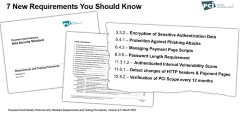
Fraud Protection
Detect Suspicious Activity
Payway’s fraud prevention tool, included with our payment gateway, helps identify, and prevent suspicious and potentially fraudulent transactions, which can be costly.
Payway’s BIN Filtering allows a merchant to accept or decline cards based on a range of BINs (Bank Identification Numbers). Payway monitors this information hourly and alerts merchants if suspicious activity is detected. Merchants then decide whether to block the activity which can be based on country code or card type, including gift cards.
Although we do everything we can to protect your business from fraud, every card-not-present transaction contains some risk. Take a proactive approach to reducing your risk by examining all sales for signals that something isn’t quite right.

How to Prevent Fraud When Taking Payment by Phone
When you receive a new sale, take a proactive approach by asking yourself a few questions.
When a customer pays with a credit or debit card over the phone, there is always the risk that the customer is not the authorized card user. It’s this risk that explains why card-not-present transactions carry a higher payment processing fee. This includes when credit card payments are manually keyed-in for over the phone transactions. Preventing card-not-present fraud is a proactive operation. You must take every precaution for security and verification for any CNP transactions.
- When taking payments, it’s wise to ask for extra details beyond the card number, such as the CV2 number, expiration date, full cardholder name or billing address. Consider calling back the cardholder to confirm the purchase.
- It is not a bad idea to keep an internal “gray list.” This is a record of chargebacks or disputes by delivery address. If you have repeated problems at a particular address and suspect fraud, you may want to discuss this with relevant card issuers before processing more transactions there.

Case Study: Payway Detects & Blocks Carding Activity
In one case, we had noticed unusual transaction activity for one of our customers. Their average number of transactions quadrupled. A report showed an influx of small charges over the course of a very short time period. Through our data analysis, we were able to able to identify a set of BIN ranges associated with credit cards that originated in a specific country within South America. We suspected carding activity – a type of fraud in which an unauthorized person steals credit card numbers to charge prepaid gift cards.
We called our customer and gave them the information so they could decide if they wanted us to block the BIN numbers. They did, we did, and within a short time period, we saw the number of transactions return to their normal rate.


